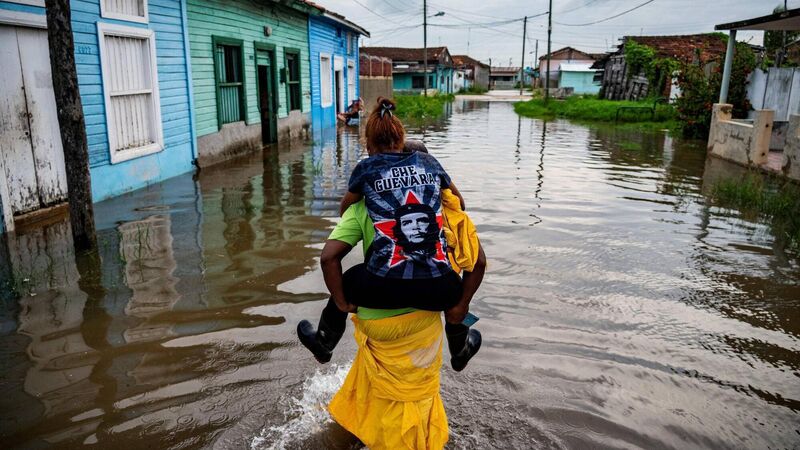Severe flooding puts people at risk even after event, study finds

A man carries a woman on his back as he wades through the water in a flooded area of Batabano, Mayabeque Province, Cuba, on August 28. Picture: Yamil Lage/AFP via Getty Images
People affected by severe flooding events around the world are at risk of death weeks after the actual event, a decade-long study has found.
Monash University scientists in Australia found that people impacted by a flooding event are at significantly increased risk of dying prematurely, with the likes of heart and lung issues arising between three and six weeks after the event, long after the waters have receded.
CLIMATE & SUSTAINABILITY HUB













